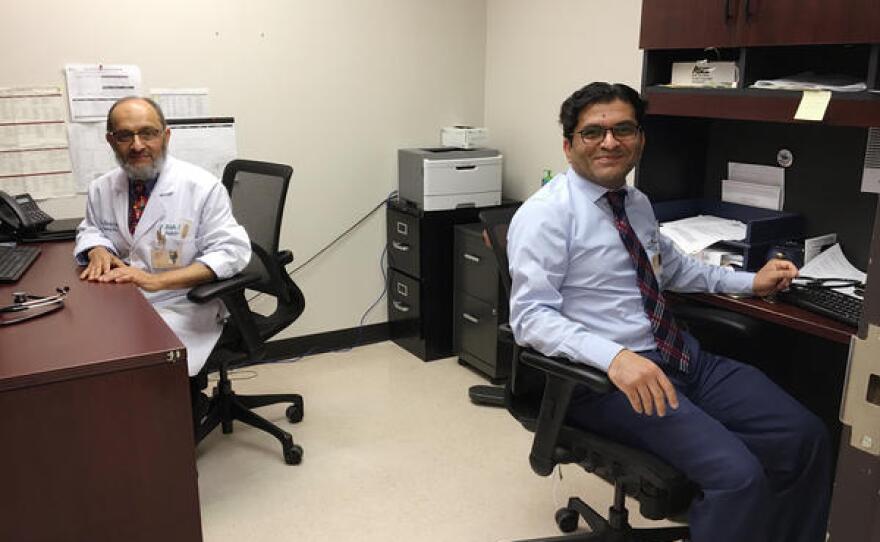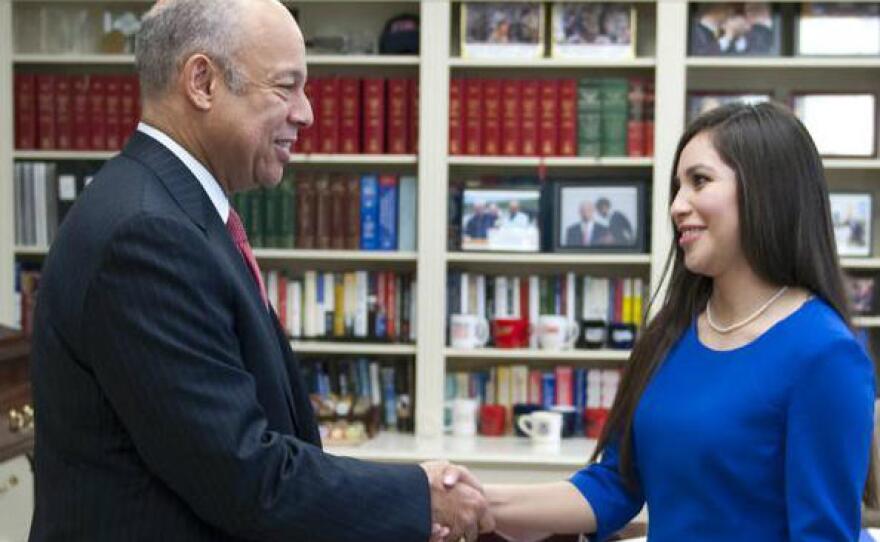This week on Fronteras:
- Mexico may be rethinking its cooperation with the U.S. on security issues due to President Trump's economic threats.
- Sent home because of the president's travel ban, an Iranian national studying in California finds comfort in the show of support she received.
- The travel ban is also affecting foreign-born physicians who practice in the U.S.
- Young immigrants who currently have deportation relief worry that it won't last long.
U.S.-Mexico Intelligence Cooperation Could Face Change
The partnership the U.S. has with Mexico on intelligence cooperation could be in jeopardy. Intelligence cooperation between Mexico and the United States has become closer in the last decade on issues important to both countries—illegal immigration, border security, drugs and human trafficking. But that critical intelligence relationship may be under examination in Mexico. The country is trying to fashion a response to a number of economic threats issued by the new Trump administration. And security is one serious card to play. Marfa Public Radio’s Lorne Matalon reports.
The Story
Iranian National Student Sent Home From U.S. Speaks Out
The Department of Homeland Security issued new rules this week that allow more, and faster deportations of undocumented immigrants. Immigration and Customs Enforcement agents are directed to expedite removals of any undocumented person convicted of any criminal offense, including minor ones such as driving without a license. ICE agents also have authority to conduct more raids.
Meanwhile, as President Donald Trump unveils a second version of his travel ban on refugees and immigrants, people caught up in the confusion of the first executive order are still trying to get over the experience. California student Sara Yarjani an Iranian national, is a permanent resident of Austria. She has a student visa in the U.S. but late last month she was turned away at the Los Angeles airport as the president’s first travel ban went into effect. She spoke with Maureen Cavanaugh of KPBS about being sent home and how she still has faith in the American people.
The Story
Travel Ban Could Affect Foreign-Born Doctors Who Practice In U.S.
Even if you aren’t from one of the countries listed in President Trump’s travel ban, the policy could have a direct effect on your health. The ban is on hold for the moment, but it’s put a spotlight on doctors in the U.S. who hold foreign passports. As KERA’s Lauren Silverman reports, these physicians often serve in areas where there aren’t enough doctors.
The Story
DACA Recipient Worried About Future Under Trump Administration
Two years ago, Ana Zamora was on top of the world. She’d written a letter to President Obama – who invited her to his State of the Union address. Here’s what she told KERA in 2015.
Ana Zamora: “In the letter, I expressed my story and what I expected from the future and how grateful I was for to be a recipient of DACA.”
DACA is the Deferred Action for Childhood Arrivals program. President Obama created it to keep approved young immigrants in this country. Last fall, while Donald Trump was running for president, he vowed to end the program. On Tuesday, President Trump declared DACA protections would remain in place, though many undocumented immigrants are taking this assurance with a grain of salt. As KERA’s Gus Contreras reports, that leaves people like Ana Zamora in limbo.
The Story






